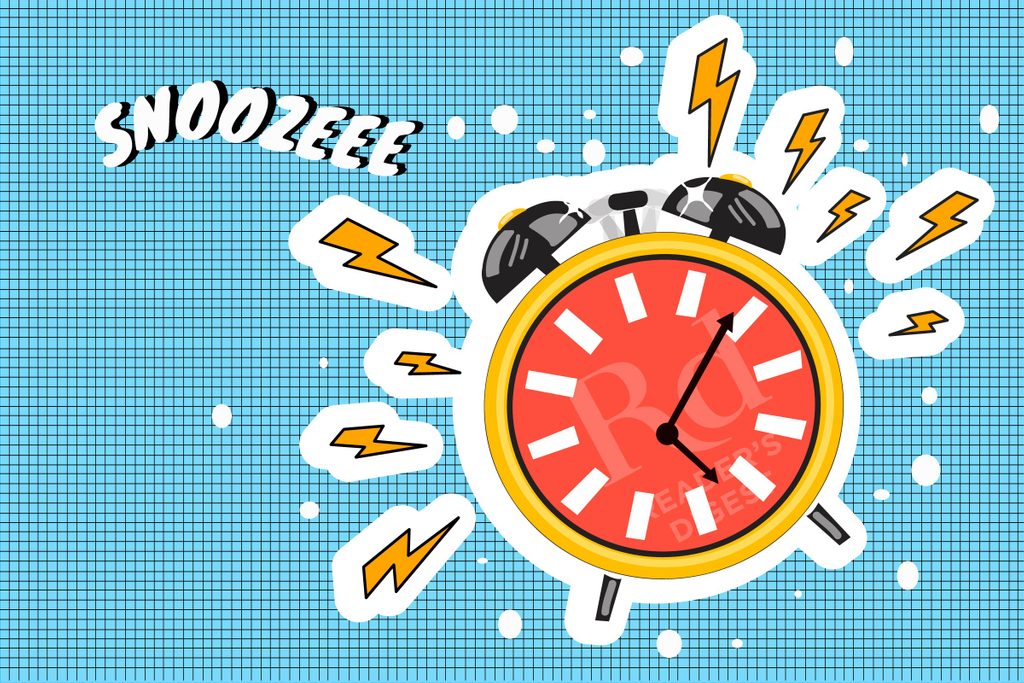If You Hate Waking Up in the Morning, You’re Using the Wrong Alarm Clock
Updated: Apr. 30, 2021
Rise and shine!
If getting out of bed in the morning is the hardest moment of your day, don’t automatically brand yourself “not a morning person.” Your exhausting routine of hitting snooze, rolling over, hitting snooze, rolling over, might be fixed with a simple alarm clock swap (much easier than trying to change your whole personality!)
Natural light alarm clocks are the latest electronics craze. They claim you’ll wake up feeling more energized and refreshed because their sunrise simulated glow gradually nudges you awake and helps your eyes adjust to a dark room, prompting you to jump out of bed instead of pulling the covers over your head at the blare of your alarm. (Curious as to why you wake up before your alarm? Here’s why.)

But are they really as magical as they sound? We asked sleep expert Raj Dasgupta, MD, FACP, FCCP, FAASM, assistant professor of clinical medicine at the University of Southern California, to weigh in. His conclusion: probably, but they’re not one-size-fits-all!
“I truly feel that sleep is individualized and focusing on the light component is one piece of the puzzle to get good, refreshing sleep,” he says.
Other factors like room temperature, diet, and overall lifestyle also impact good sleep hygiene, so while he warns that natural light alarm clocks won’t work for everyone, there’s no harm in trying them out. (These are common sleep mistakes that could be causing insomnia) One type of person who may particularly benefit from an alarm clock like the BEDDI Glow by WITTI are night owls.
“Natural light alarms are one way to adjust your circadian rhythm, particularly those who tend to go to bed late and wake up late, known as delayed sleep phase syndrome. One of the treatment options is to slowly advance their bedtime and have them exposed to light earlier in the morning,” says Dr. Dasgupta.
Though he still believes the best morning prescription is to get outside and expose yourself to natural sunlight, one aspect of using a natural light alarm clock instead is that it may gradually ease your body out of REM sleep (the stage where you sleep deepest) and into the lighter stages before you actually wake up.
“I like the theory behind this because you do want to wake up in the lighter stages of sleep, which makes you feel more refreshed and less groggy upon wakening,” he says.
All clock varieties come with different features, so it’s a good idea to shop around and see what will fit in your lifestyle and budget. The BEDDI Glow will start lightening up your room either five, 10, or 30 minutes before your alarm time, can be controlled through a free smartphone app, provides the option of waking up to your favorite music, and has a built-in white noise generator to help you fall asleep the night before. It even alerts you to traffic and weather updates once you’re fully roused.
If you’re still consistently tired or fatigued despite getting the recommended seven to eight hours of sleep (and trying a natural light alarm clock and every other hack under the morning sun), see a sleep specialist to make sure you don’t have an undiagnosed sleep disorder.